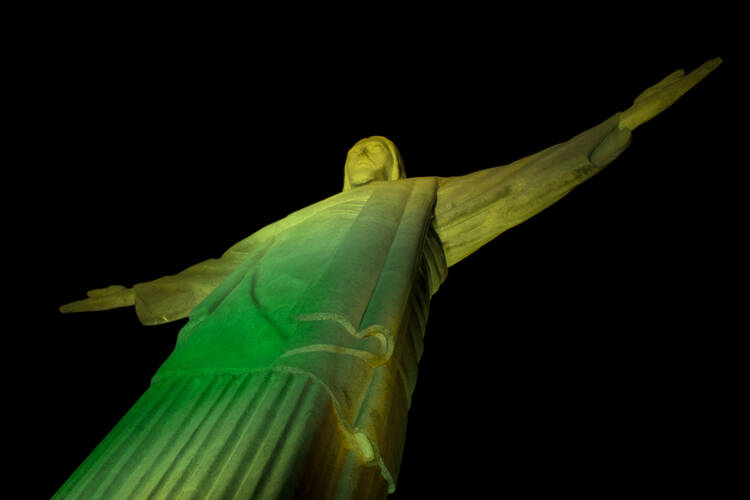The Brazilian bishops' conference has given the government and 2014 FIFA World Cup organizers a "red card" for putting the competition above the Brazilian people's basic needs.
In soccer, a "red card" is given to players who commit serious fouls and are expelled from the game.
The bishops said there was an "inversion of priorities, with public money that should have been used in health, education, sanitation, transportation and security" being used to build enormous stadiums.
The conference also criticized organizers for the removal of families and communities so that stadiums could be constructed.
"In places like Brasilia and Manaus, huge stadiums have been built for the Cup. These cities do not even have strong soccer teams, so that after the Cup we are wondering what they will be used for," said Archbishop Anuar Battisti of Maringa, head of the tourism department at the bishops' conference.
The bishops also criticized the entire infrastructure decision-making process, which "excluded millions of citizens from participating and being informed" about specific plans for the World Cup.
Archbishop Battisti said the church now wants the government to guarantee that people living on the streets will be secure, not harassed and expelled from their locations by police and government officials, as some local media have reported in cities hosting the games. It also asks that no police violence be perpetrated against street demonstrators.
In turn, the bishops committed to help fans and players have access to moments of spirituality and encounters with God, remaining a strong presence throughout the World Cup. They also pledged to look out for the more vulnerable groups of society, such as the homeless, and help raise awareness of the possible increase of sexual tourism during the event.
Catholic entities were expected to promote a march through the capital, Brasilia, June 11, to remember victims of sexual exploitation. The march is part of a campaign, "Play in Favor of Life -- Report Human Trafficking," created by the Conference of Religious of Brazil to help prevent sexual exploitation before, during and after the World Cup.
Brazilian religious say more than 30,000 women religious, nearly 8,000 priests and 2,700 religious brothers are involved in the campaign.
"What we want to show the world is that ethics and social commitment in Brazil are alive and well," said the archbishop. "We want the event to be remembered as the Cup of dignity and peace."








